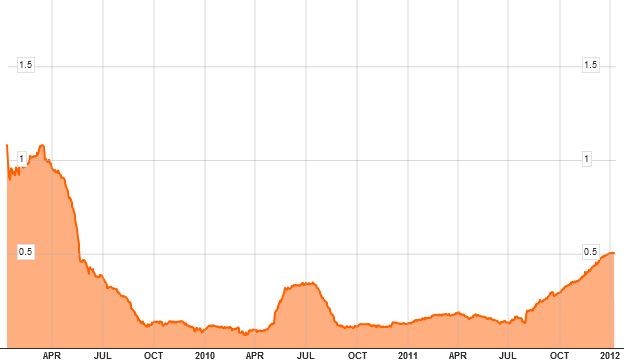It has been 10 weeks since China reported the outbreak of the Coronavirus. We have experienced significant volatility in the financial markets, and it is still uncertain as to the short-term and long-term impacts to the US economy. The financial markets were already struggling with the Coronavirus uncertainty, and today, we were hit with the addition of an oil price war. The result to the S&P 500 was a decline of (-7.6%). This is a (-14.7%) decline for the YTD and (-18.8%) from the peak. In correspondence to the equity markets’ decline, interest levels dropped well below all-time lows and bond prices jumped. Right now, the markets are trading on high levels of emotion and not truly on fundamental information
Towards the end of last week, we saw pressure in the oil markets and concerns over future prices. In a discussion addressing prices, Russia and Saudi Arabia were unable to reach an accord. Russia balked at the idea of cutting production, and Saudi Arabia’s response was to reverse course and instead increase its production targets. Given the anticipated increase in supply, this resulted in a significant drop in the price of oil further. Keep in mind this is not the first time that Saudi Arabia has used this method in the past, with the intention of crushing US shale production which ultimately failed. The reality though is that the pain will mostly be felt in Russia and Saudi Arabia due to their economic dependence on oil. The benefit here is that the US is a much more diversified economy and is now energy independent and able to withstand the lower oil prices. We believe todays market decline is primarily related to the Coronavirus and this was just another piece of uncertainty.
Moving into 2020, the U.S. economy was in a very strong position. The trade war with China was in a good place. The job market was incredibly strong. Consumer strength and retail sales were excellent. Housing starts were at very high levels. Corporate financials were improving and the consensus of analysts had high expectations for 2020, with lower levels of improvement expected early in the year, but ramping up as we reached the end of the 2nd quarter. These expectations have shifted, and there is a meaningful level of disparity in the opinions as to what comes next. It is pretty clear that there will be an impact to the US economy from the virus, but to what extent?
We were far enough into the quarter that end of Q1 data will likely not show the full extent of the economic impact from the Coronavirus. In fact, the Atlanta Fed had projected a real GDP growth rate of 3.1%. Since then, there is already some good directional data, and we see Q1 GDP growing closer to 2% for the quarter. It is likely that Q2 will be where we see the most impact. This, combined with the already lower expectations for Q2 will result in some unattractive economic growth numbers. There are various views on what GDP growth will be. We are currently projecting a relatively flat 2nd quarter GDP growth rate. However, it is possible that the media panic we are witnessing could change spending patterns, and the 2nd quarter could end up in negative territory. One of the reasons for the lower expectations for Q2 comes as a result of lower inventory levels, which are a result of China’s part in our supply chain. Looking at current levels of Chinese productivity, in our opinion, this piece should reverse in Q3, and add to the 3rd quarter growth as a result of inventory replenishment.
The real question is when do we gain clarity on the actual impacts from the Coronavirus? Will it be a quick recovery, will it result in a global slowdown, or will it cause a recession? We find the likelihood of an actual recession to be unlikely. We have had severe flus before without a recession, and generally when we did have a downturn, the economy bounced back very quickly. This is our expectation. As we’ve discussed many times before, the markets hate uncertainty, and as more information becomes clear, we suspect that the emotionality in the markets will begin to dissipate. We also expect that the economic drivers that were moving the markets prior to the Coronavirus will resume once the Coronavirus is tempered, as will corporate financials. Of course, there will be a short-term impact, but should those drivers resume course, we would expect to see a corresponding shift in valuation metrics.
New cases in China have fallen dramatically, and healthcare companies are racing to find ways to combat the Coronavirus. It is still unknown as to whether or not this virus is seasonal, but historically, coronaviruses are usually tempered by warmer weather. Should that be the case, will it come back again? This is also an unknown, but if it does, we will learn how to manage it, just as we have with influenza. Healthcare companies are rapidly developing and testing vaccines and treatments, and remember that technology has enabled us to develop these significantly faster than in past outbreaks. The U.S. healthcare system remains one of the most technologically advanced in the world and it is important to keep in mind that while the Coronavirus is tragic, this is not a SARS type of virus. Remember that most fatalities from the Coronavirus come as a result of a preexisting condition. In fact, according to worldometers.info, the current fatality rate for individuals with no pre-existing conditions is 0.9% and most of those fatalities are from countries with significantly lower levels of care than what are available within the U.S. This is not said to diminish the seriousness of this virus, but rather to put some perspective around all of the figures that are being touted. We believe that the U.S. Consumer remains in a great place, and the key economic drivers we have been witnessing will continue in the year to come. We do expect to see continued volatility until more clarity is available on the Coronavirus, and as outlined above, we do expect to see some financial impact over the next couple quarters.
We feel good about our current positioning and we have been actively making shifts to take advantage of what we believe to be market inefficiencies. We are watching news and data feeds incredibly closely, and stand ready to make further positioning changes for our clients quickly if anything fundamentally changes. Should you have any concerns or just want to talk, please reach out to us. It is always prudent to evaluate your current risk tolerances and this discussion is always welcomed. We appreciate your continued trust.



